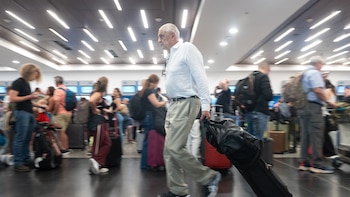
The Council of State denied a precautionary measure that Pastor Alape, a former combatant and former member of the FARC secretariat, had requested in 2021 regarding the enumeration and delivery of assets obtained by the extinct organization.
Specifically, Alape had complained against a section of Decree 1407 of 2017, which requires ex-combatants to make a list of their property during the time they spend in the Transitional Areas of Normalization.
According to him, this request placed an additional burden on natural persons in the process of reintegration, which “does not refer to the inventory obligation established in respect of FARC-EP”.
Alape asked that the process of listing assets be suspended until it was decided which goods are part of the community and which others belong to each one.
However, the Council of State disagrees with that argument. According to the court, the Final Agreement was not negotiated individually, but jointly with all the members of the extinct guerrillas under a unit of command. Thus, all those who signed had to assume the commitments arising from the agreement and their assets were considered collective.
The assets included in the inventory will be used in an autonomous fund that will be used for the reparation of the victims of the FARC's violent actions. The creation of this fund is part of the Final Agreement, is necessary and represents a constitutional act “because it materializes the duty of the perpetrators to make reparation to their victims”.
For this reason, the Council of State denied the precautionary measure and held firm the requirement to deliver the goods as soon as possible, since the initial date — December 2020 — has already expired.
Meanwhile, two ex-combatants have been killed this week in the department of Cauca. One of them, Domingo Mancilla, was shot down in the municipality of Guapi last Tuesday. The other, Jorge Chanchi Ramos, of indigenous origin, was found dead in a village of El Tambo.
After the deaths of Chanchi and Mancilla, the number of signatories killed this year rises to 11, according to reports from the Institute for Development and Peace Studies (Indepaz).
According to Rodrigo Londoño, former head of the extinct FARC and president of the Comunes party, these murders are evidence of the lack of guarantees for life that the national government would be offering to the signatories. He accompanied his complaint with a message of condolences through his Twitter account:
KEEP READING:
Últimas Noticias
Debanhi Escobar: they secured the motel where she was found lifeless in a cistern
Members of the Specialized Prosecutor's Office in Nuevo León secured the Nueva Castilla Motel as part of the investigations into the case

The oldest person in the world died at the age of 119
Kane Tanaka lived in Japan. She was born six months earlier than George Orwell, the same year that the Wright brothers first flew, and Marie Curie became the first woman to win a Nobel Prize

Macabre find in CDMX: they left a body bagged and tied in a taxi
The body was left in the back seats of the car. It was covered with black bags and tied with industrial tape
The eagles of America will face Manchester City in a duel of legends. Here are the details
The top Mexican football champion will play a match with Pep Guardiola's squad in the Lone Star Cup

Why is it good to bring dogs out to know the world when they are puppies
A so-called protection against the spread of diseases threatens the integral development of dogs




